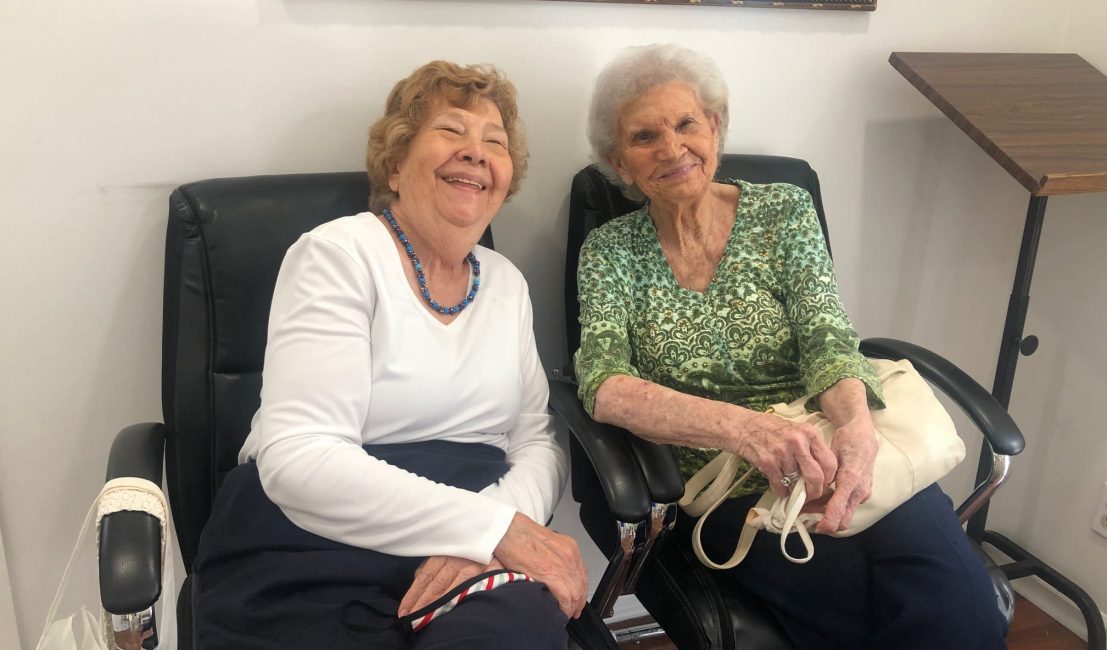About Us

The Florida Outreach Center for the Blind (FOCB) is a not-for-profit organization/training facility where all of our programs are FREE to the blind and visually impaired. People of all ages are welcome and classes and training are available in English, Spanish, Creole and French. The Center has never turned away any blind person who requested help.
The Center is recognized by the Florida Division of Blind Services as one of the participants in a handful of new programs designed to increase self-sufficiency and independence. Through the skills learned in the programs at the Center, the expectations of visually-impaired students are raised, and they become more competent, self-sufficient, and independent. Students are equipped with the foundation for success as they interact with positive blind role models who use effective teaching techniques and provide challenging opportunities to build confidence.
Our Mission
The mission of the FOCB is to develop and administer programs that will integrate blind and visually-impaired persons into the social, economic, and spiritual lives of their community.
Our Core Values
The FOCB believes that individuals who are blind or visually impaired have the right to tools and training that will allow them to reach their personal, academic, and vocational goals. We strive to have instructors who are blind or visually impaired so they can share that experience and show our students that they have succeeded in life and inspire others to do so.
How We Came to Be
The Center was formed for the express purpose of providing services to people who are blind or visually-impaired. It was founded in 2003 by Carolyn Lapp who lost her sight at age fourteen in an automobile accident. She realized that thousands of visually- impaired persons had virtually no services. Ms. Lapp established the FOCB with a mission to address the needs of the estimated 44,000 visually impaired residents of Palm Beach County.
It was Ms. Lapp’s belief that students could benefit from the perspective and insight of a positive blind role model and would respond well and more rapidly to someone who knows first-hand what they are experiencing and has successfully met the challenge.
According to Carolyn, “I believe that I’m blind for a reason and that is so I can help others who are experiencing the challenges of vision loss.” Mrs. Lapp’s idea was a simple one: It was Ms. Lapp’s belief that students could benefit from the perspective and insight of a positive blind role model and would respond well and more rapidly to someone who knows first-hand what they are experiencing and has successfully met the challenge. Therefore, FOCB is unique among local organizations serving blind and low-vision persons in that the CEO, most of the staff and at least half of the board members are blind.
What We Do
The FOCB does not just teach skills. It uses a holistic approach that addresses the general needs of its clients and their families. Through the skills learned at the center, individuals become more independent, enjoy a better quality of life, and are able to utilize community resources, pursue an education, and choose a career path.
- Counseling visually impaired individuals to understand and accept their blindness.
- Low Vision, Optical, and Non-Optical Devices Training.
- Job Coaching and Readiness Training.
- Self-Advocacy Training.
- Information and Referral Services.
- Community Integration.
- Outreach Programs for seniors who are visually impaired.
- Kids’ Club for blind children and their families.
- Peer/Facilitated Support.
- Recreational and Leisure Time Activities.
- Virtual and in-person workshops on various topics.
FOCB reaches out to and supports the families by:
- Counseling sighted family members and friends of the blind individual to aid them in understanding blindness.
- Serving as liaison between the client and other agencies. (Florida Division of Blind Services, Veterans Administration, Social Security Administration, etc.)
- Working with eye care professionals.
- Training and utilizing volunteers.
- Increasing awareness about blindness through presentations, web site, social media, mail-outs, phone blasts, literature, and newsletters.
The FOBC’s programs for the blind and visually impaired include:
- Braille
- Classes for computers, cell phones and assisted technology
- Independent & daily living skills, including cooking/using appliances
- Mobility training
- Outreach programs for seniors
- A reading library with audible books
- Peer support and advisory support groups
- Arts & Crafts
- Leisure time activities and field trips
- Kids’ Club
- Information and referral services
- Serving as a liaison between clients/students and other agencies
